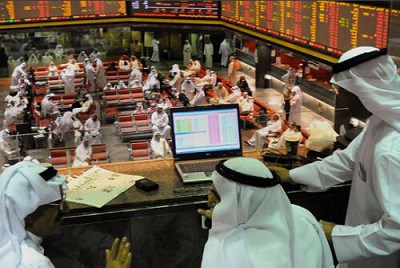Monday, 14 September 2015 01:24
 DUBAI: Most Gulf stock markets fell on Sunday, tracking oil prices, while Egypt rose after the country’s oil minister, a successful reformer, was asked to form a new government.
DUBAI: Most Gulf stock markets fell on Sunday, tracking oil prices, while Egypt rose after the country’s oil minister, a successful reformer, was asked to form a new government.
The Cairo index climbed 0.6 percent with most stocks positive after President Abdel Fattah al-Sisi on Saturday asked Oil Minister Sherif Ismail to name a new cabinet.
The government had submitted its resignation shortly after authorities arrested Egypt’s agriculture minister over corruption allegations.
Ismail will likely be appointed prime minister, replacing Ibrahim Mehleb. An engineer who held senior posts at several state-run energy firms, Ismail is seen as one of the best performing ministers.
As oil minister, he oversaw politically sensitive reforms, slashing energy subsidies, and also paid back some arrears to foreign energy companies to improve Egypt’s image among investors.
Also, Egypt’s central bank said at the end of last week that core annual inflation had dropped to 5.61 percent in August from 6.49 percent in July.
“Overall, we view this as positive news for the markets – which in our opinion could give rise for expectations of a rate cut by the central bank,” brokerage Naeem said in a note.
GULF
Most Gulf markets were in the red after crude futures fell on Friday, when influential Wall Street trader Goldman Sachs cut its outlook on oil. US crude settled 2.8 percent down, at $ 44.63 a barrel. Brent lost 1.5 percent to $ 48.59.
Saudi Arabia’s main index had risen initially on news that index compiler FTSE added the country to its watch list for potential inclusion in the emerging markets category.
But it gave up all gains later in the day and closed 0.7 percent lower. The petrochemicals sector was particularly soft and fell 1.1 percent.
Dubai’s index fell 1.5 percent as most stocks fell. Mortgage lender Amlak Finance, the most traded stock on Sunday and a favourite among speculative short-term investors in the last few months, tumbled 6.0 percent.
Abu Dhabi’s bourse edged up 0.3 percent, supported by telecommunications firm Etisalat which rose 1.4 percent. Etisalat will allow foreign and institutional investors to buy its shares for the first time on Sept.15 and retail investors are bidding up the stock in anticipation.
Qatar’s benchmark fell 1.7 percent, despite news of the country’s upgrade to emerging market status by FTSE.
The index compiler said on Friday that Qatar’s inclusion as a “secondary emerging market” would be completed in two tranches. The first one will be implemented in September 2016 and the second in March 2017 semi-annual review.
Industries Qatar, whose petrochemicals business is sensitive to oil prices, was the main drag on Doha’s bourse on Sunday, dropping 3.0 percent.



























